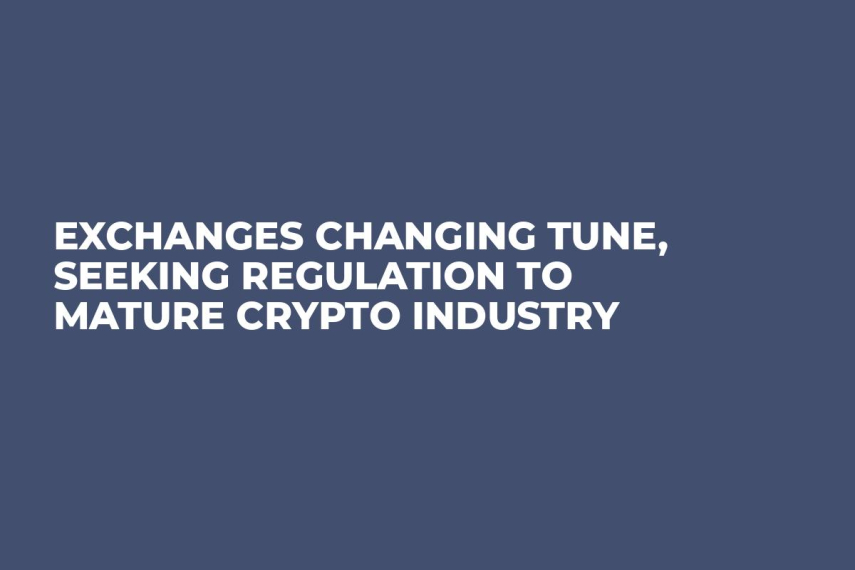
When cryptocurrency exchanges first burst into the market they had pretty much free reign as regulators and legislators did not have much of a clue about cryptocurrencies. They were also far less adopted and seen only as a pastime for those in tech and computers.
However, as things have moved on, regulators have started catching up and implementing a lot of strict rules and regulations in some part of the world- notably China, Japan and Korea.
This has made things harder for exchanges as they become subject to financial and banking laws, but it has also helped them build up a lot of legitimacy for those who are willing to toe the line It is that legitimization which many are craving, according to a recent survey.
Big push to be regulated
According to the survey performed by Mistertango, contrary to perception, 88 percent of crypto exchanges want industry regulation. The exchanges believe regulation is needed for the industry to mature because as it stands, nearly 33 percent fear a major market crash and sudden devaluation of assets without change.
The study was based on responses from 24 crypto exchanges across Europe, Asia, South America and Oceania, with total daily trading volumes of over $100 mln.
Despite the overwhelming call for regulations, 17 percent of the exchanges feeling that overly strict regulations are not the answer either and that they could ultimately cripple the cryptocurrency industry.
Banks and customers
For exchanges, as the middlemen, they operate with customers on one side, and banks on the other. It is because of this that exchanges, 40 percent of them, also feel that reducing the barriers to funding crypto activities by banks will improve acceptance.
Banks are one of the players in this co-operative industry that will be more at ease with a regulated space so that they can trust and work with these exchanges.
But, 33 percent of exchanges, also want to help ease this path by stating that users should be subject to Know Your Customer & Anti-Money Laundering checks like those using traditional financial services.
 Caroline Amosun
Caroline Amosun Tomiwabold Olajide
Tomiwabold Olajide Godfrey Benjamin
Godfrey Benjamin